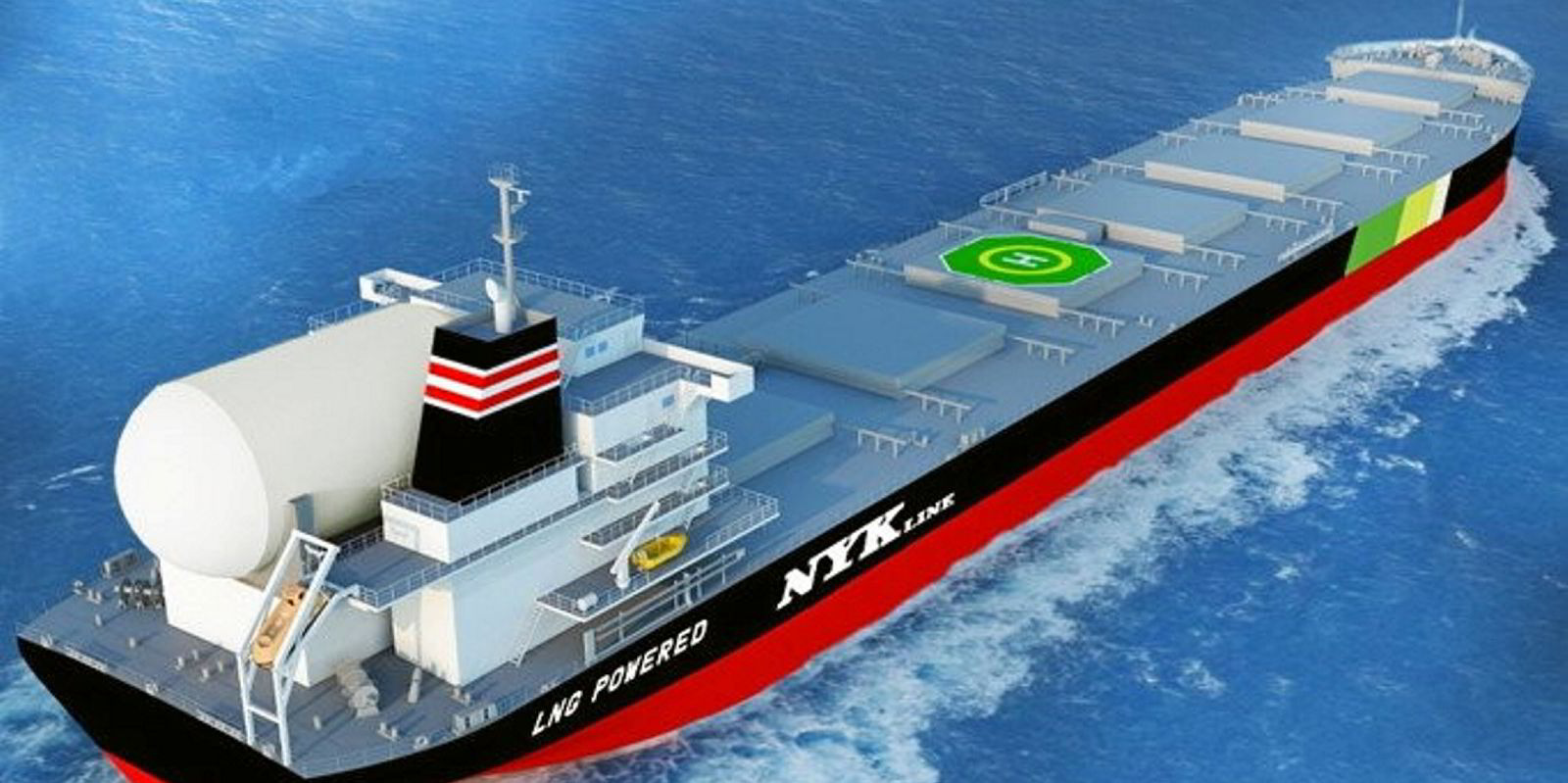Giant Japanese shipowner NYK continues to bet on LNG as a pathway to decarbonisation with a new domestic bulker order.
The group has contracted two LNG-fuelled large coal carriers from Oshima Shipbuilding for delivery in 2025. No price was given for the deal.
The 95,000-dwt ships are part of a bulk carrier fleet development plan aimed at achieving net-zero greenhouse gas (GHG) emissions by 2050.
The two 235-metre carriers will emit no SOx, 80% less NOx and 30% less CO2 compared to existing conventional vessels running on heavy fuel oil.
“NYK is positioning LNG fuel as a bridge solution until future zero-emission ships can be realised,” the owner said.
The company ordered the world’s first LNG-fuelled large coal carrier in 2019 and its first LNG-fuelled capesize in 2021, in addition to four more LNG-fuelled capsize bulk carriers in January 2022.
“Going forward, we will continue with the gradual planned introduction of LNG-fuelled vessels until the realisation of zero-emission vessels that use marine fuels such as hydrogen or ammonia, which would have an even lower environmental impact,” NYK said.
In September, the group said it was plotting LNG tanker orders and more LNG-fuelled bulkers as it targeted new fuelling business in the west of the country.
The shipowner said it had signed a cooperation agreement with Itochu Enex, Kyushu Electric Power Co and Saibu Gas Co to commercialise the use of the gas as a marine fuel for vessels.
LNG bunkering
“The parties have decided to examine the commercialisation of an LNG bunkering business in the Setouchi and Kyushu areas of western Japan,” the company said.
This will include planning the construction, ownership and operation of LNG vessels required for ship-to-ship supply.
In July, NYK issued two tranches of unsecured bonds in the Japanese domestic market, each of ¥10bn ($90m).
The Tokyo-listed owner said the money will be used to fund offshore wind support and LNG bunker vessels, as well as ships using hydrogen fuel cells or that are fuelled by ammonia, LNG and LPG.
The bonds will also fund efficiency improvements and optimisation of vessel operations.




